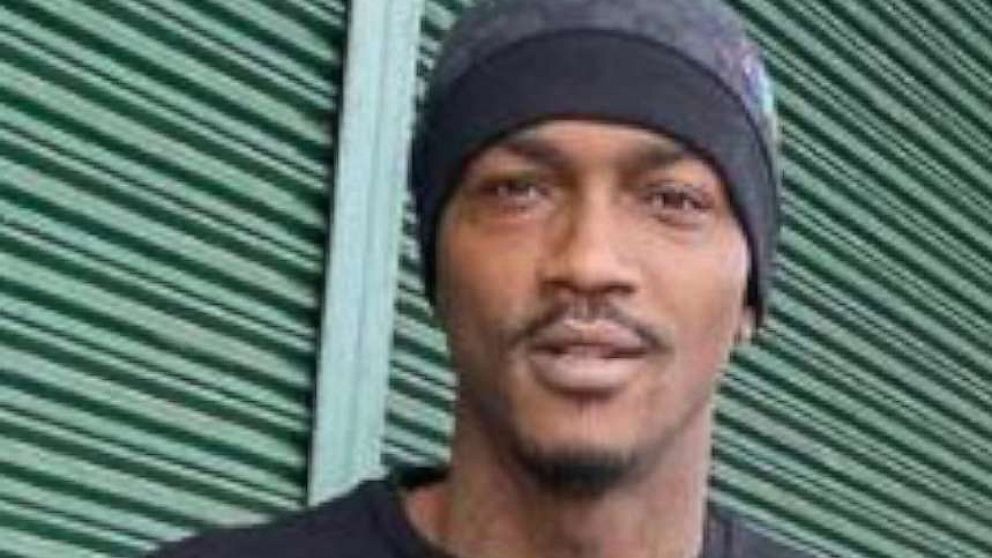Another violence interrupter killed in Baltimore as community reels from gun violence
A man who worked on the front lines of preventing gun violence in Baltimore, Maryland, was shot and killed on Wednesday night in a quadruple shooting on E. Monument Street, in the McElderry Park neighborhood.
Baltimore native DaShawn McGrier, 29, worked as a violence interrupter for Safe Streets and is the third member of the organization to be shot and killed in the last year.
"[DaShawn] was passionate about his community, and was working hard to make that community safer for his family, friends and neighbors," said Meg Ward, Vice President of Strategic Growth and Community Partnerships at Living Classrooms -- a nonprofit that operates two of the 10 Safe Streets sites in the city, including McElderry Park. "He was a son, he was a father, he was a partner. He was a brother, he was a devoted and present father to his child."
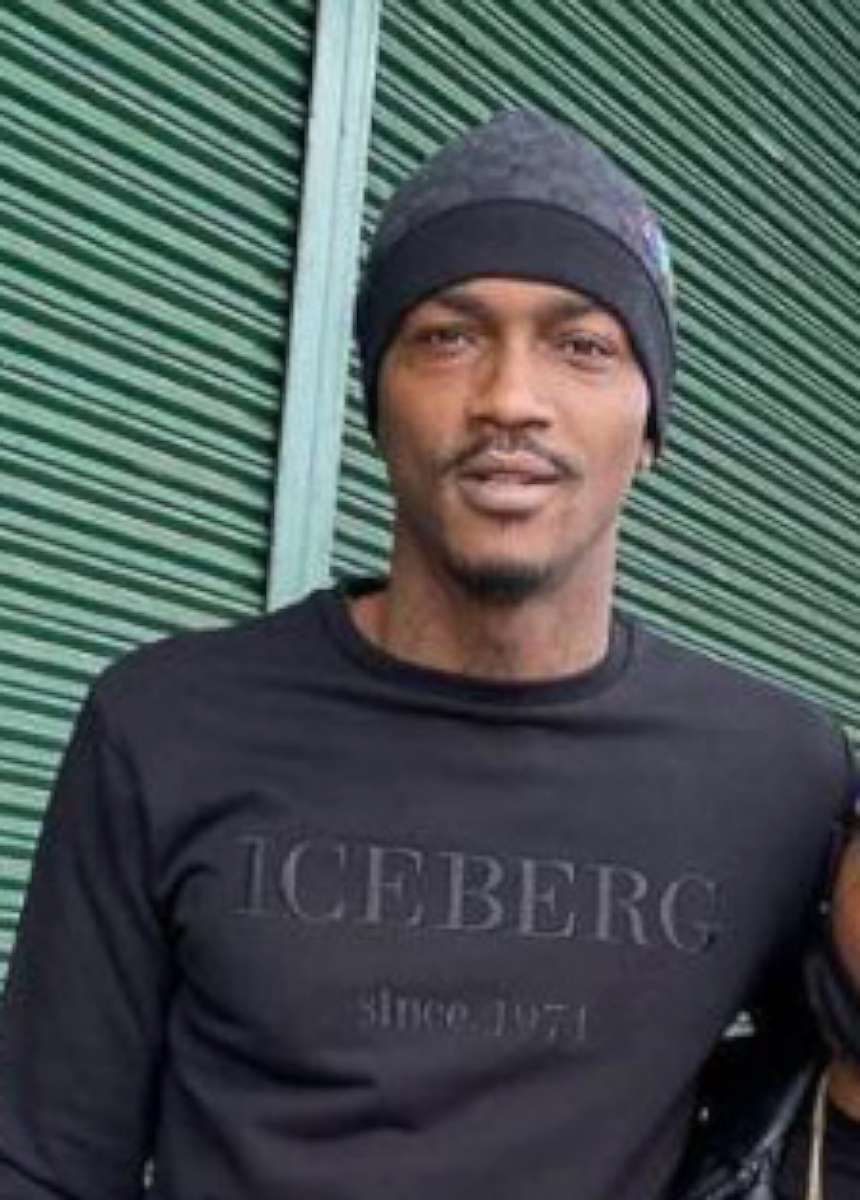
Police responded to a shooting at 7:25 p.m. on Wednesday after four adult males were shot, police said. One man was pronounced dead on the scene and McGrier and another were transported to a hospital, where they died from their injuries.
According to Ward, McGrier was having a conversation with the other two victims while working at his post on Monument Street when the shooting occurred.
"Apparently, a tow truck came around the corner and they just shot up the block," Ward said.
BPD identified the other victims as 28-year-old Tyrone Allen and 24-year-old Hassan Smith. A spokesperson told ABC News Friday that "no arrests have been made at this time."
"We are dedicating every available resource to finding and apprehending the cowardly perpetrators of this act," Baltimore Police Commissioner Michael Harrison said in a statement Wednesday.
When asked if this was a targeted shooting, police said the investigation is ongoing.
There have been more than 300 homicides in Baltimore each year for the past five years, with 338 in 2021 and 335 in 2020, BPD data shows.
Community members and Safe Streets workers gathered on E. Monument Street Saturday afternoon to honor McGrier and other victims of gun violence.
"What choices are we going to make? This is our community," said Safe Streets violence interrupter Alex Long in a passionate speech at the event. "These shootings gotta stop."
Baltimore Mayor Brandon Scott also attended the event and said that the city is "determined to honor DaShawn's legacy in the best way we can -- by expanding community violence interventions across the city."
"[Safe Streets Baltimore] is not just an organization, but a calling. DaShawn believed that we could build a better Baltimore. Let's show him that we can," Scott tweeted, along with photos of the event.
Ward said Safe Streets organizes shooting response events to "denormalize" gun violence -- especially in neighborhoods where shootings are common -- by creating an opportunity for the community to come together to honor the victims and send the message that, "This is not OK." And on Saturday, they honored one of their own.
Violence interrupters also connect individuals with resources such as job placement opportunities and financial support.
Ward said that McGrier had been working as a violence interrupter for a little over a month, but had been a part of the Safe Streets community for a long time. He was a "hard worker," she said, who was a welding student at the North American Trade School during the day and worked at the Safe Streets McElderry Park site at night to help mediate conflicts that could lead to shootings.
"The work that is being done to stop this from happening is really, really important. And it makes it that much more important when you lose one of your own," she said.
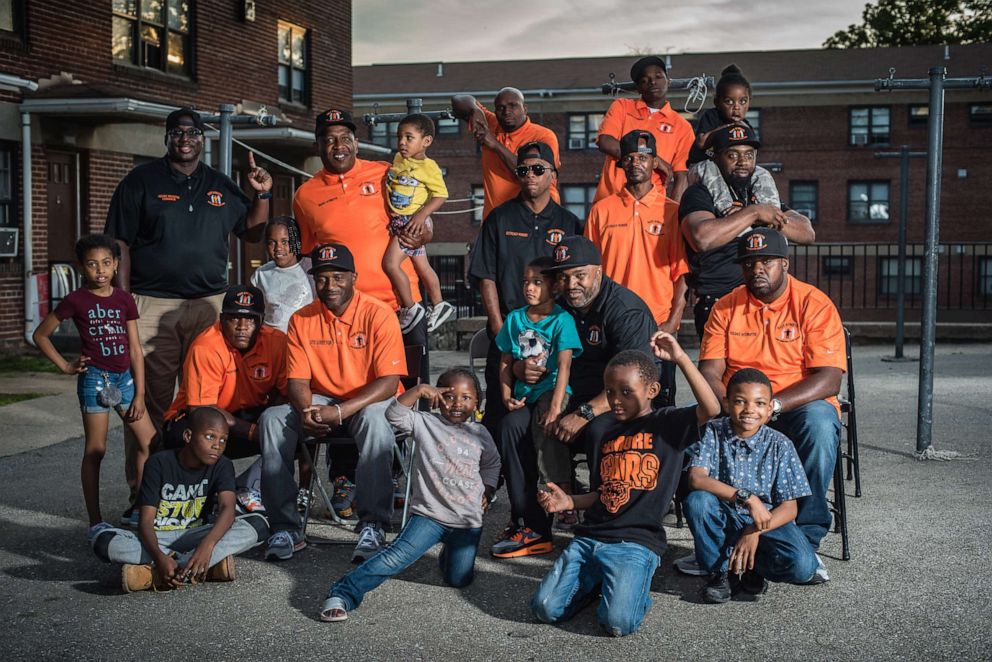
Safe Streets is backed by the Mayor's Office of Neighborhood Safety and Engagement (MONSE) and the 10 sites are operated by various nonprofits across the city, including Living Classrooms and Catholic Charities.
McGrier's killing came as the Safe Streets community continues to mourn the deaths of two beloved longtime members who were killed over the past year and who had dedicated their lives to reducing gun violence.
Dante Barksdale, a Safe Streets outreach coordinator, and Kenyell "Benny" Wilson, a Safe Streets violence interrupter, were shot and killed in separate incidents in January and July. Two days before McGrier was killed, the community gathered to honor Barklesdale on the anniversary of his death.
"We were devastated, it was very traumatizing. It's very difficult to say their names or to think of them, and to not feel that consistent void in our hearts, because they were definitely individuals who impacted the community in such an incredible way," Rashad Singletary, the associate director of gun violence prevention at MONSE told ABC News last year. "And for them to lose their lives to the same thing that we tried to save thousands of lives from, it was very, very disheartening and tragic."
How violence interrupter programs work
Safe Streets was launched in Baltimore in 2007 in the McElderry Park neighborhood. It is one of several violence prevention programs in the country that is based on a model that started in Chicago in the mid 1990s.
According to experts who study and evaluate solutions to gun violence, research shows that the concept is "promising," but challenges persist when it comes to implementation and funding.
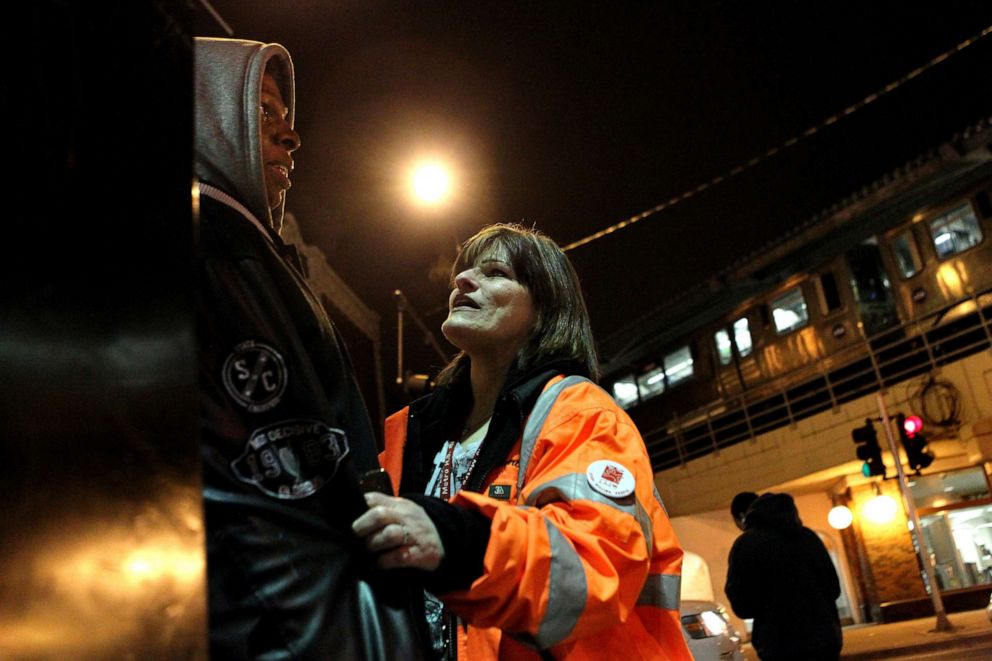
Safe Streets, for example, serves 10 target areas but only covers 2.6 square miles in a city that spans 92 miles of Maryland.
But researchers told ABC News that one of the things that makes it all worthwhile is seeing the violence interrupters asserting their influence to keep the peace.
"[Violence interrupters] are from the same streets, grew up in the same areas and had the same experiences as young people, and so they just have more access and access means influence," said Jeffrey Butts, director of the Research and Evaluation Center at John Jay College of Criminal Justice. "The possibility of influencing someone's behavior and attitude is stronger if you come at them as an equal."
Violence interrupters also connect high risk individuals with resources that the organization offers, including job placement and financial support that could help alleviate some of the suffering -- conditions that lead some to resort to violence.
What the data shows
Recent studies have shown that Safe Streets programs have been effective at reducing gun violence in various neighborhoods.
A 2012 study published by the Johns Hopkins Bloomberg School of Public Health found that Safe Streets workers were successful at reducing gun violence in three of four neighborhoods where the initial sites were established, Director of the Center for Gun Policy and Research at Johns Hopkins University Daniel Webster previously told ABC News.
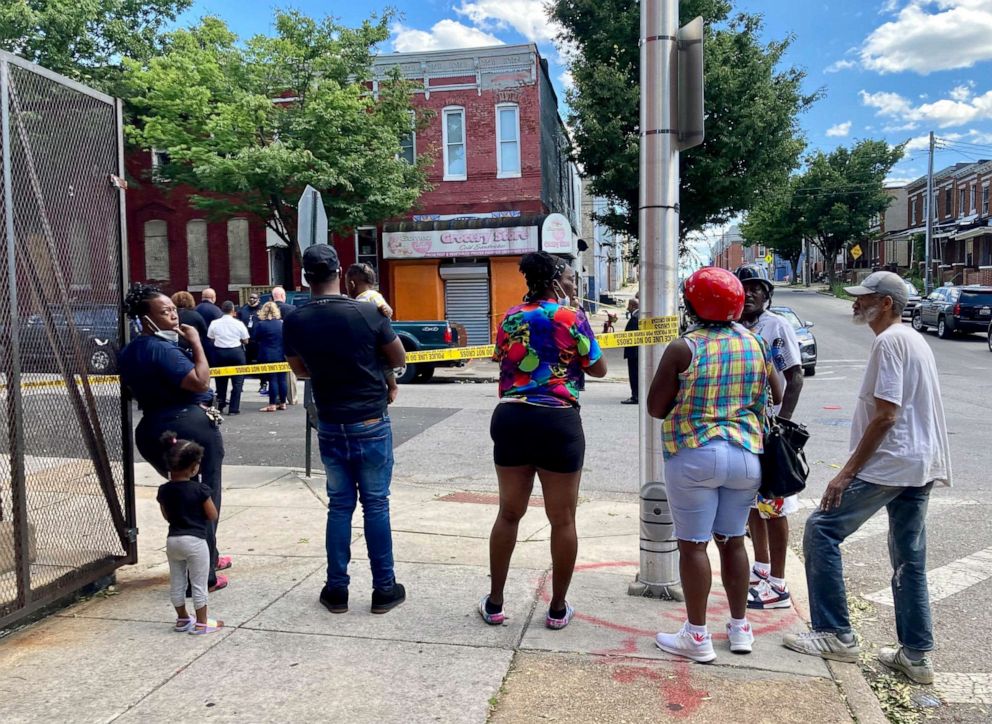
According to Webster, although results of a 2015 evaluation were more mixed, the studies found that young people in neighborhoods with violence interruption programs were less likely to believe gun violence was an acceptable way to respond to conflict.
Safe Streets workers mediated more than 2,300 conflicts in 2020, according to MONSE, and after gaining more funding from the city, the organization opened its tenth site in 2021.
"Safe Streets workers mediate the very types of conflicts we saw tonight," Harrison said in a statement Wednesday. "All the Safe Streets workers are to be applauded for their work in reducing gun violence and promoting a message of redemption and peace to the many young people of our city."
MONSE Director Shantay Jackson said that the mayor's office will be providing support to the family of the victims and the staff, including grief counseling.
"This is a reminder of the courageous, yet dangerous job our frontline staff does each day when working with those at the highest risk of being a shooter or the victim of a shooting," she said in a statement.
Ward said that the "tremendous loss" highlights the need for violence-prevention work in Baltimore.
"People are heartbroken," she said, "and at the same time, [the] feeling or sense is this is the reason to double down."
ABC News' Abby Cruz and Kendall Ross contributed to this report.
